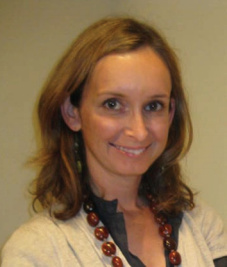
She may have what she calls a “traditional academic health-sciences background”, but Jocalyn Clark has anything but a traditional health-sciences job. She is the senior magazine editor for PLOS Medicine, a peer-reviewed, weekly, open-access medical journal.
Jocalyn started her career as an undergraduate biochemistry major, completed both a master’s degree and a doctorate in public health, and landed a fellowship with the Canadian Institutes of Health Research. Her interests included research on the use of health services by women who had been sexually assaulted and gender-equity and public-health issues. In addition, she researched, wrote, and edited a fair amount on peer review, and this led her to attend the International Congress on Peer Review and Biomedical Publication in 2001. There she met Richard Smith, editor of BMJ, who encouraged her to apply for a fellowship at BMJ. Jocalyn said that she “really enjoyed the 1-year BMJ fellowship” and was later hired full-time as an assistant editor.
In 2008, Jocalyn moved back to Canada, when she joined PLOS Medicine. In her current role, Jocalyn oversees the magazine (front) portion of the journal, including commissioning pieces and editing content for weekly publication. She believes PLOS has been most influential in articles about ghostwriting, the role of the food industry in global health, and access to clean water as a basic human right. Jocalyn wrote one of the first pieces published in a medical journal that examined the use of rape as a tool of war. She believes that PLOS Medicine is uniquely situated to provide a forum for critical issues in global health both because of its open-access license and because it does not take money from the pharmaceutical industry for advertising. Jocalyn notes that her job requires travel, so she gets to meet “amazing, dedicated people who are addressing health inequities”.
When asked about the open-access model for a medical journal, Jocalyn explains that open access allows the world’s scientific and medical research to be a public resource. She notes two important issues: removal of barriers to accessing the literature and author retention of copyright. She notes that although wealthier countries do not see barriers to content access (“many of us in wealthy countries can use our library’s institutional subscriptions to read journals”), this is not the case for most people, especially in developing countries. She says that authors tend not to understand the copyright issues involved in publishing when they transfer copyright to publishers who then sell access to their content, and that research funded by public dollars—and peer review conducted by academics—should be free and in the public domain.
In addition to her work at PLOS Medicine and as a professor of medicine at the University of Toronto, Jocalyn stays active with yoga, Pilates, and running (including a few marathons). She is an avid sports fan and could see herself as a yoga and Pilates trainer if she were not in biomedical publication.
But that is where she wants to be: At PLOS Medicine, Jocalyn is able to pursue her passions in global and public health. “I want to travel and experience other cultures, especially regarding public health.” She feels that her current position allows her to make contributions in public health, and this is the most important work that she has done in her career.
STACY CHRISTIANSEN is director of manuscript editing at JAMA, Chicago, Illinois.
